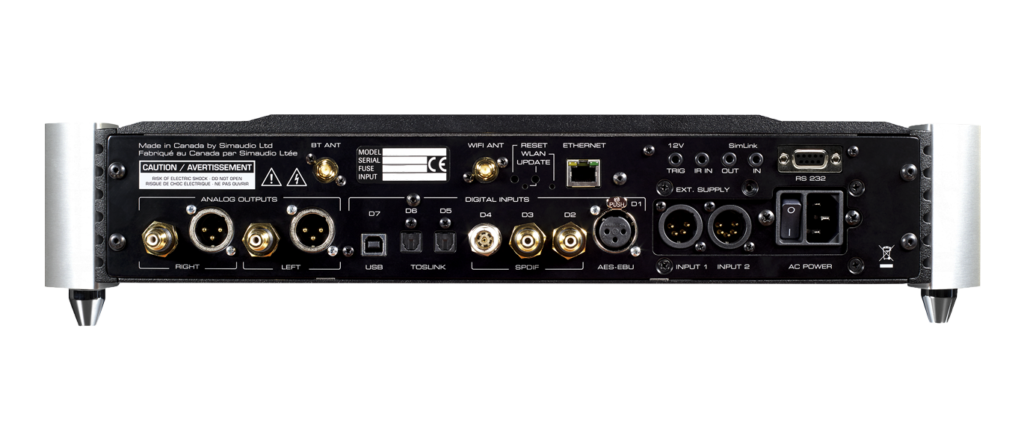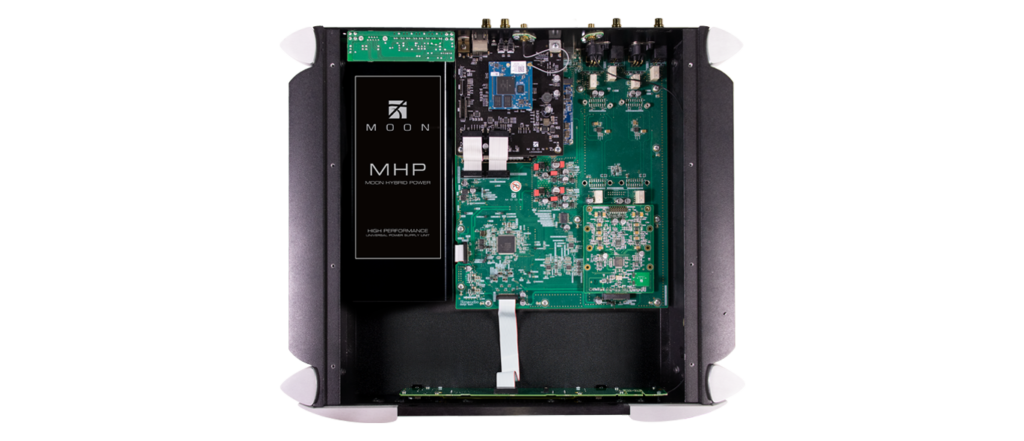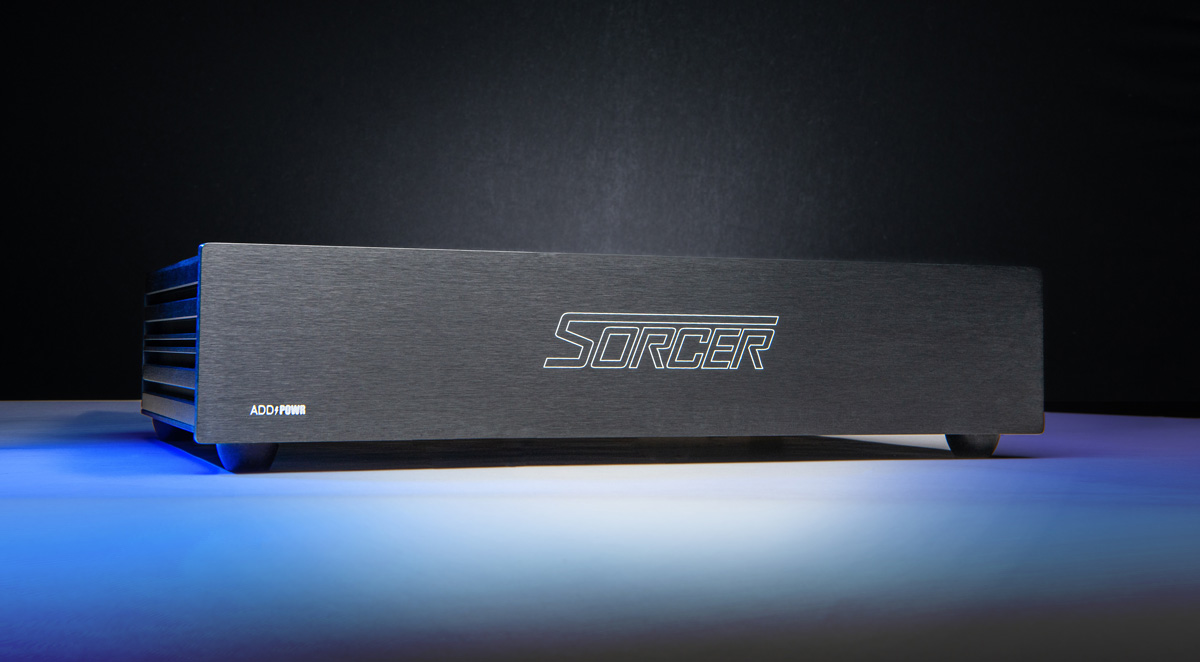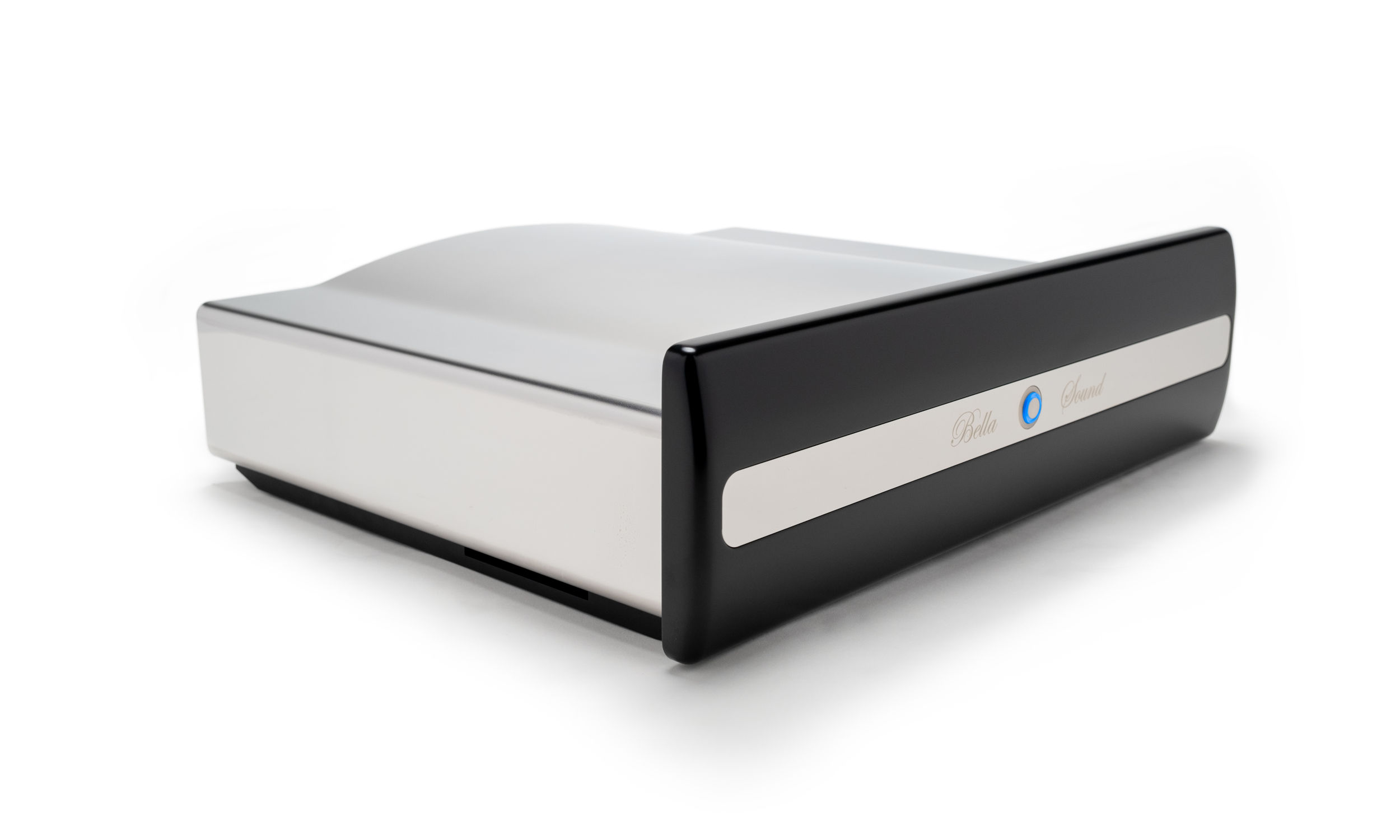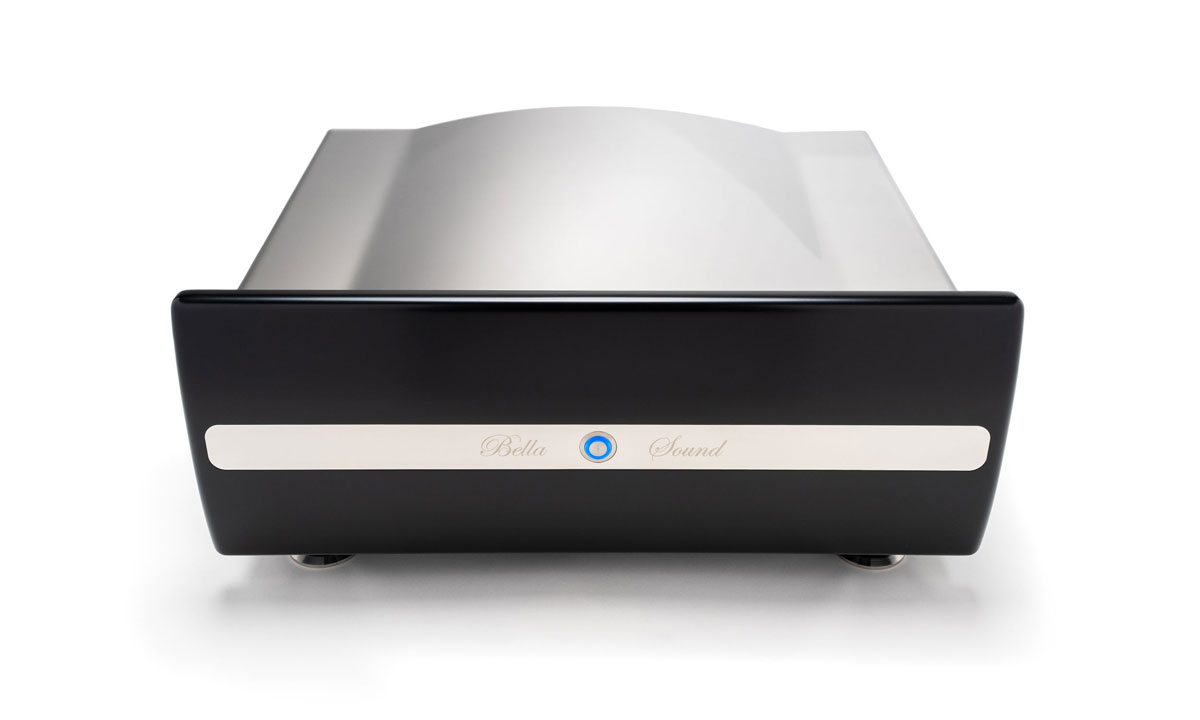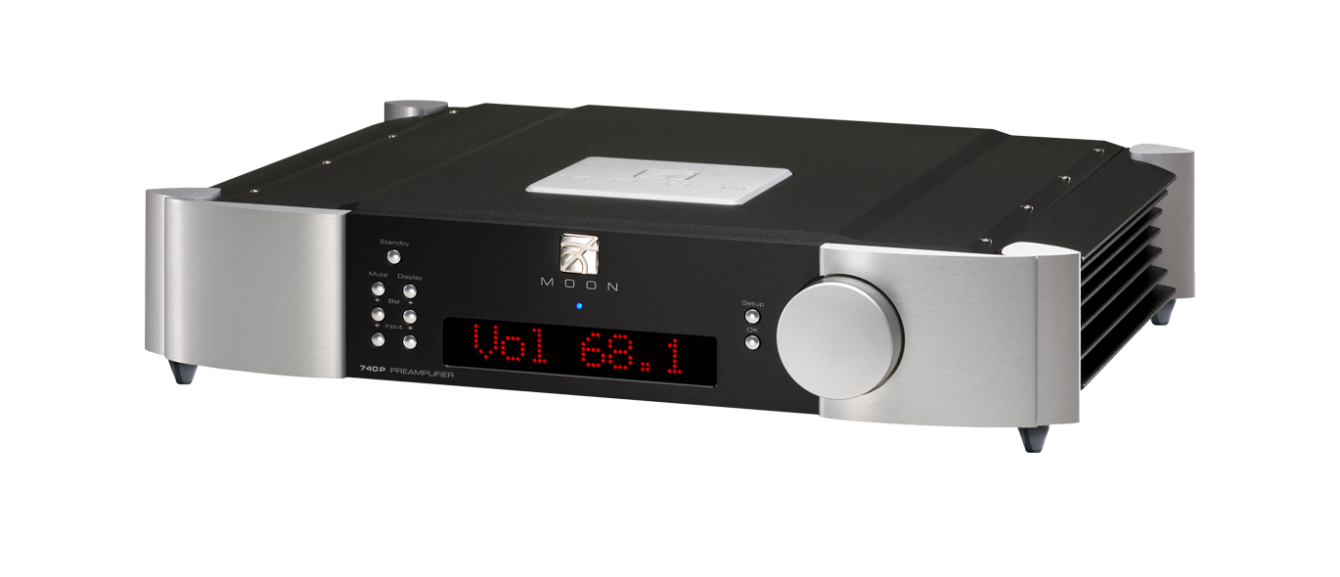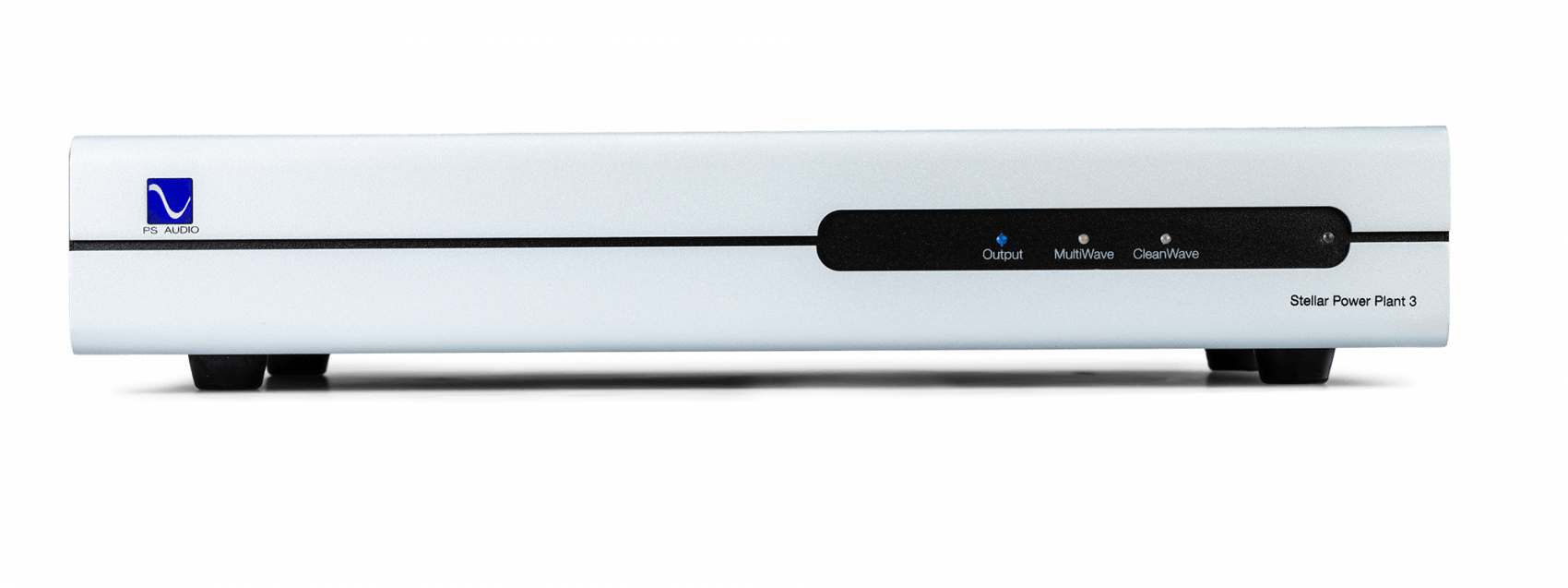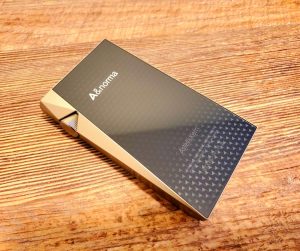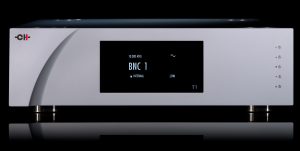Simaudio recently introduced a new streaming digital to analog converter to their Moon product line. The $9000 680D streaming DAC slots in somewhere between the $15000 780D v2, and the $3000 280D. As with many, if not most of the products in the Moon series, the 680D has the same width and depth (18.75 x 16.8 inches) only varying in height. Additionally, it shares other cosmetic touches in industrial design, including the heat sinks on the side panels, height adjustable aluminum feet at the four corners, and a rather massively built chassis with a shipping weight of 38 pounds. This means that Moon series products can be easily stacked. There are three cosmetic options, including all black, all aluminum, or two tone black with aluminum. I personally prefer the two tone option.
For those unfamiliar with Simaudio, this Canadian company was founded in 1980 under the name Sima Electronics and focused on Pro Sound equipment. In the 1990s Sima Electronics was reorganized into Simaudio Ltd and shifted its focus to consumer electronics. The Moon Limited Edition series was established in 2004, the company's 25th anniversary.
Features
Utilizing the MiND 2 app, the 680D is a Roon ready device and includes MQA Technology. The 680D features nine digital inputs including USB, AES/EBU, 3 SPDIF, 2 optical, Bluetooth, aptX, and Ethernet. It supports native DSD up to DSD256 and PCM up to 384kHz. This dual-mono design is powered by Moon Hybrid Power, a high performance supply using conductive polymer capacitors, high speed digital switching, and analog linear regulators. There are also two stages of low noise DC regulation, four stages of independent inductive DC filtering, a very short signal path using a DC servo circuit, and proprietary 18dB per octave analog filtering. There is a RS-232 port for firmware updates, a 12 volt trigger output for remote operation, and an IR input for external control. For those that feel the internal supply to be inadequate, the 820S external supply can be added for an additional $8000. If you will be using the 680Ds USB input with a Windows computer you will need to download the driver from the Simaudio website.
The front panel display window indicates the selected digital input, its corresponding sample rate frequency of the source material currently being played, and/or assigned input label. To the left of the display are four buttons. They are Standby, Display, Up, and Down input selection. Standby disengages all outputs from the rest of the 680D's circuitry and turns off the display but leaves digital and analog circuitry powered up. The Display button allows three levels of brightness or off. Even in the off position the display will still light up briefly whenever any buttons are pressed. To the right of the display are four more buttons used for customization of the numerous software functions available. They are Setup, OK, Up, and Down. For each of the nine inputs you can assign a label, or disable the input completely if not in use. I won't cover every possible customization here. Check the website for more info. The 680D includes an excellent user's manual with detailed instructions on customization.
The back panel is comprised of connections for the balanced and single ended analog outputs, the nine digital inputs, 12V trigger input, IR input, Simlink in/out, RS-232 port, the IEC power input, on/off switch, and two WiFi antenna connections. A very nice remote is included that offers most of the front panel functions plus additional features for use with other Simaudio products.
The 680D uses the ESS ES9028PRO chipset in a fully balanced differential configuration. Dynamic range and signal to noise ratio are both listed as 123dB, and intrinsic jitter is one picosecond RMS. These are excellent specs, and my listening experience with the 680D leads me to believe them.
Setup and Listening
The 680Ds chassis is built more like a power amp. It is very solidly constructed and beautiful to behold. The heatsinks on the side are likely there to cosmetically match it to the other components in the Moon series. During the review period the top of the chassis never got above room temperature. I used the 680Ds balanced analog outputs to connect to my preamp. The first thing I noticed in my initial listening session was less output than I was expecting. A quick look at the specifications page in the user's manual confirmed that both the single ended and balanced outputs were rated the at same output voltage. In a true balanced circuit the output voltage is usually double the single ended output. Ultimately, this only affected the position of the volume control.
Although I tried a lot of the various streaming features to confirm their functionality, my primary listening to the 680D was via its USB input connected to my music server. Through that input I was able to play upconverted audio files at the DACs native rate of 352.8/384kHz for PCM. I also tried native DSD, although I usually run DoP (DSD over PCM) from my server.
The user's manual recommends a burn-in period of 400 hours. Initial listening confirmed the need for it. I ran the 680D continuously with the Purist Audio Design System Enhancer disc on repeat for a micro fortnight. The next reviewer in line won't have to go through that. My hard work was ultimately rewarded as the 680D opened up. Spoiler alert: This DAC sounds great!
Pace, Rhythm, and Timing were first rate. The 680D could really boogie when called upon. When the music was lively you had to be on your feet. It sure made me dance. The 680D also had a knack for mining the gold out of recordings. For instance, when playing one of those early CD transfers that sound so hard and flat at times, the 680D could pull out content and detail that helped rescue the listening experience. It didn't make bad recordings good, but it made them more listenable. No matter what material you threw at it, the 680D was unfazed and always composed.
The 680D had excellent clarity and definition. Bass articulation and extension in particular were superb. At this juncture, it ranks as the best bass reproduction I've heard in my system. Midrange and treble were also clear and distinct, the sound never becoming hard, brittle, edgy, aggressive or analytical unless the music was. Both male and female vocalists were free of sibilance or chestiness. Piano music was reproduced with good balance between body and string tone if the recording permitted. The overall tonal balance of the 680D was even, with no spotlighting of any particular frequency range.
Imaging was also well done by the 680D. For instance, studio recordings where the instruments and vocals are panned to specific locations in the mix were easily deciphered by this DAC. Each object had its own cocoon of space within which macro and micro detail, tonality, and texture were all revealed. This made it easily possible to focus on a specific instrument and follow it through the mix. The 680D also captured the air and ambiance of live recordings, realistically portraying the venue and crowd sounds. The soundstaging of the 680D was compact with reasonably good width and depth, but a perspective slightly more distant than my reference.
As one would expect from the excellent specifications hiss, noise, and distortion were essentially nonexistent. Dynamics were first rate, going from a whisper to a roar with equal clarity and definition retaining the dynamic envelopes of individual instruments even during climaxes. There was little or no change in perspective with signal level.
Conclusion
Great build quality, great looks, great sound. Who could ask for anything more? In case you missed it, I loved this DAC. If the 680D falls within your budget, you should definitely check it out. It took me a couple of weeks after the departure of the 680D before I could readjust to my system without it. As far as I'm concerned, the only thing wrong with the 680D is that it is no longer here.
680D streaming DAC
Retail: $9000
Simaudio





